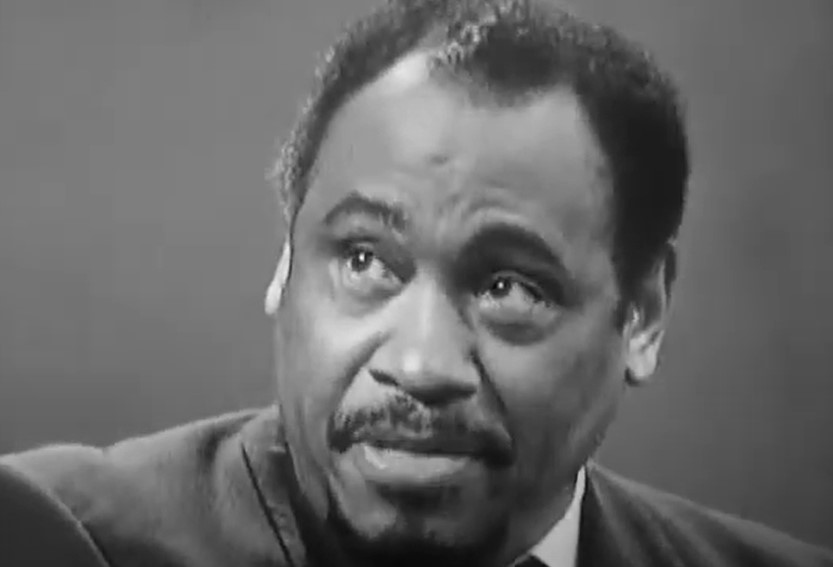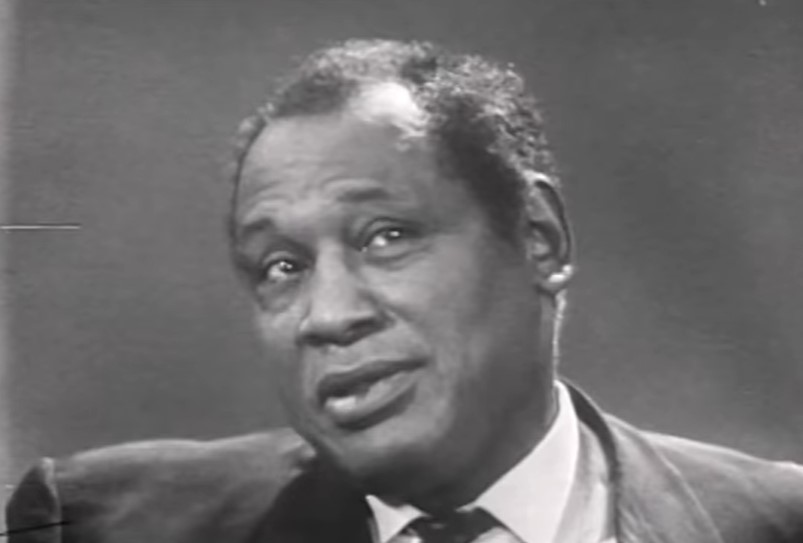Paul Robeson was a gifted actor, singer, and political activist. He was also a black man in America during the 1950s, a time when racism was rampant and the government was cracking down on dissent. As a result, Robeson was blacklisted from the entertainment industry.
There are a few reasons why Robeson was blacklisted. First, he was a vocal critic of the House Un-American Activities Committee (HUAC). HUAC was a congressional committee that investigated alleged communist infiltration of the entertainment industry. Robeson refused to cooperate with HUAC, and he was called a “traitor” and a “communist sympathizer.”
Second, Robeson was a supporter of the Soviet Union. At the time, the United States was in the midst of the Cold War, and the Soviet Union was seen as a major enemy. Robeson’s support for the Soviet Union made him a target of the government’s anti-communist campaign.
Third, Robeson was a champion of civil rights. He spoke out against racism and segregation, and he called for equal rights for all Americans. This made him a target of the white establishment, who saw him as a threat to the status quo.
Specific Reasons Why was Paul Robeson Blacklisted
Paul Robeson was blacklisted from the entertainment industry in the 1950s for a number of reasons, including:
- His political activism. Robeson was a vocal critic of the House Un-American Activities Committee (HUAC) and its investigations into alleged communist infiltration of the entertainment industry. He refused to cooperate with HUAC, and he was called a “traitor” and a “communist sympathizer.”
- His support for the Soviet Union. At the time, the United States was in the midst of the Cold War, and the Soviet Union was seen as a major enemy. Robeson’s support for the Soviet Union made him a target of the government’s anti-communist campaign.
- His advocacy for civil rights. Robeson was a champion of civil rights and spoke out against racism and segregation. He called for equal rights for all Americans, and this made him a target of the white establishment.
The blacklisting of Paul Robeson was a dark chapter in American history. It was a time when the government silenced those who spoke out against injustice. Robeson’s story is a reminder of the importance of fighting for freedom and equality, even in the face of adversity.
The Impact of the Blacklist
The blacklisting of Paul Robeson had a significant impact on his career. He was unable to find work in the entertainment industry, and he was forced to rely on his speaking engagements and his recordings to make a living. The blacklist also had a negative impact on Robeson’s mental health. He became increasingly isolated and depressed, and he eventually suffered a nervous breakdown.
The blacklisting of Paul Robeson was also a symbol of the larger problem of racism in America. Robeson was a victim of discrimination because of his race, and his blacklisting was a reminder of the power of the white establishment to silence those who challenged the status quo.
The Legacy of Paul Robeson
Despite the blacklist, Paul Robeson continued to speak out against injustice. He traveled the world, giving speeches and concerts in support of civil rights and human rights. He also wrote a book, “Here I Stand,” about his experiences as a black man in America.
Robeson’s legacy is one of courage and determination. He refused to be silenced by the government or by the white establishment. He stood up for what he believed in, even when it was difficult. His story is an inspiration to all who fight for freedom and equality.
What was Paul Robeson Accused Of?

Paul Robeson was accused of being a Communist by the United States government. This accusation led to his passport being taken away and he was unable to travel outside of the country. He was also blacklisted from working in Hollywood and other entertainment industries.
Why Did Paul Robeson Give Up His Law Career?
Paul Robeson was one of the most celebrated African American athletes and actors of his time. He was also a lawyer. So why did he give up his law career?
There are a few reasons that have been suggested. One is that he simply didn’t have the time to balance both his acting and law careers. Another is that he felt he could make more of a difference as an actor and public figure than he could as a lawyer.
Whatever the reason, it’s clear that Paul Robeson made a huge impact on both the entertainment industry and the civil rights movement. His talent and charisma were undeniable, and his commitment to social justice was unwavering. We can only imagine what more he could have accomplished had he not given up his law career.
What Political Challenges Did Paul Robeson Face?
Paul Robeson was an outspoken advocate for social justice and civil rights throughout his career as a singer, actor, and athlete. However, his political views often put him at odds with the United States government. In the 1940s and 1950s, during the height of the Cold War, Robeson was accused of being a communist sympathizer.
This led to him being blacklisted by Hollywood and having his passport revoked. As a result, Robeson’s career suffered greatly and he became increasingly isolated from mainstream society. In addition to facing professional setbacks, Robeson also faced personal ones.
His marriage to Eslanda Cardozo Goode ended in divorce after 33 years. His son Paul Jr. also struggled with mental health issues and committed suicide in 1976. Despite these challenges, Robeson continued to speak out against injustice until his death in 1976.
Conclusion
Paul Robeson was an African American singer and actor who became blacklisted during the McCarthy era. He was accused of being a communist and of supporting communist regimes, which led to him being banned from working in the entertainment industry. Robeson continued to speak out against racism and injustice, and he remained a popular figure in the Soviet Union and other communist countries.
You May Also Like:


